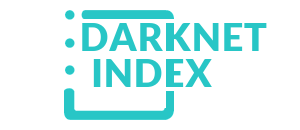The darknet, also known as the dark web, is a concealed section of the internet that's inaccessible via standard search engines. You can only access it using special software, settings, or authorization. This area comprises websites and content that are purposely kept hidden from public view.
Accessing darknet requires using Tor Browser, a special web browser that routes your internet traffic through a global network of relays managed by volunteers. This way, it becomes very difficult to trace which websites you're visiting, and these sites won't know where you are located.
When visiting the dark web, use a secure browser like Tor, do not reveal any of your personal information, and don't open suspicious files or links to stay safe.
The Darknet is often utilized for secure communication, discreet information or file sharing, anonymous research without identity exposure, and occasionally for engaging in illicit activities. It is also recognized for hosting underground black markets(darknet markets), whistleblowing platforms, and discussion boards that champion freedom of speech.
While accessing Darknet Markets themselves is typically not against the law in most places, engaging with illicit goods within them is generally considered a crime. On the other hand, some people might visit Darknet Markets for lawful purposes such as research, journalistic work, or simply to explore online communities. It's essential to know the local laws regarding online activities, and be cautious when using these platforms to avoid any potential issues.
NYC Man Arrested for Selling Stolen Credit Card Information on the Darknet & Money Laundering
Man from New York City confessed to committing computer hacking and related offenses after authorities found him with a laptop containing hundreds of thousands of stolen credit card details.
Vitalii Antonenko, 32, pleaded guilty in a Boston court to the theft of credit and debit card information, as well as other personally identifiable information from computer networks, which he then sold on various darknet markets to other criminals.
Antonenko, with unknown criminal partners, used SQL injection attacks. They targeted vulnerable online systems to get sensitive data. His victims included a hospitality company and a nonprofit research group, both in eastern Massachusetts.
While making a substantial profit is certainly a consideration for cybercriminals, there is also the challenge of figuring out what to do with the money and how to avoid attracting attention to their newfound wealth.
To hide the nature, source, and ownership of the illicit funds, Antonenko and his accomplices used cryptocurrency. They also laundered the proceeds with "traditional banking and cash transactions," per the U.S. Department of Justice."
In March 2019, Antonenkos was arrested at JFK Airport. He was charged with money laundering after arriving from Ukraine with devices containing hundreds of thousands of stolen credit card details.
Undercover agents linked Antonenko to two Bitcoin wallets. They were involved in $94 million in transactions, as reported at the time. Investigator Peter Gannon noted that Antonenko was selling Bitcoin below market rates. This raised suspicions of money laundering.
Three months after his arrest, Antonenko's lawyers requested a psychiatric exam. He showed signs of instability and claimed to be working for the CIA.
U.S. District Judge William G. Young informed Antonenko that he will be sentenced on December 10, 2024. The hacking charges carry a maximum sentence of five years in prison. They also include three years of supervised release, a $500,000 fine, asset confiscation, and restitution to his victims.
The money-laundering conspiracy charge carries a maximum 20-year sentence. It could also impose three years of supervised release, a $500,000 fine, and restitution and forfeiture.
